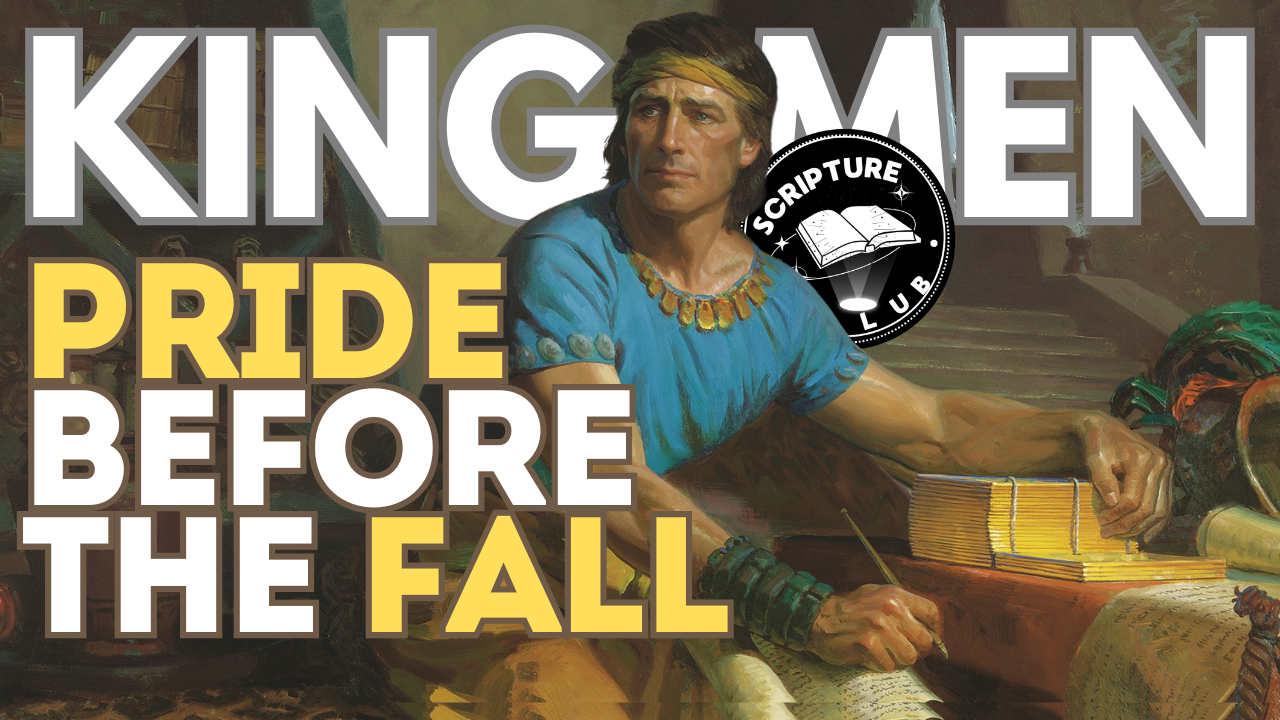Today, we’ll dive deep into Mormon chapters 1 through 3, where we witness the powerful journey of Mormon himself. These chapters tell the story of a prophet called to lead a nation steeped in pride and rebellion, a people who would rather pursue power and revenge than turn to the God who could heal them. Through Mormon’s eyes, we see both the tragedy of rebellion and the unwavering power of faith and humility.
In Mormon 1, we meet Mormon as a young boy who lives during one of the darkest times in Nephite history. At just ten years old, Mormon is chosen by Ammaron to be the next keeper of the sacred records—a role of incredible responsibility that foreshadows the mission ahead of him. This calling sets Mormon apart, marking him for a purpose he does not yet fully understand. By age fifteen, he has an even more remarkable experience: he is visited by the Lord.
This direct experience with God strengthens Mormon’s resolve, preparing him for a lifetime of leading and witnessing among his people. As he comes to know the Lord’s will, he realizes the depth of commitment that will be required of him. In this way, Mormon becomes an example of unwavering faith at an early age, showing us that God calls us at all stages in life, even in our youth, to do His work.
Reflecting on this, Elder Jeffrey R. Holland has said, “God always requires of us a certain degree of courage and faith to face things we may feel inadequate to bear.” Mormon faced a nearly impossible task, and yet he responded with complete trust in God’s purpose for him.
President Russell M. Nelson teaches us that “The Lord loves effort because effort brings rewards that can’t come without it.” This chapter illustrates that through faithful effort, even in youth, we can begin a journey of lifelong growth and service in God’s kingdom.
In chapter two, we see Mormon as a leader of the Nephite armies, guiding a people who are spiritually lost. His people have fallen deeply into pride and no longer seek genuine repentance. At one point, they cry out to the Lord, but as Mormon observes, their repentance is empty. They are more interested in avoiding the immediate consequences of their actions than in actually changing their hearts. Mormon realizes that this insincere repentance will not bring about the transformation they need to be healed.
Sister Reyna I. Aburto expressed this beautifully in her October 2024 General Conference address: “True repentance requires a change of heart, not just words or gestures.” Mormon’s people demonstrate how shallow repentance, driven by fear rather than love, fails to draw us closer to God and leaves us spiritually weak.
Joseph F. Smith once observed, “Pride and selfishness lead to discord and division, but the Spirit of the Lord brings unity.” This pride causes the Nephites to focus on their perceived superiority, rather than fostering a spirit of unity that would bring peace and strength. Mormon sees this pride as a stumbling block that weakens them from within, even as external threats like the Lamanites press in on every side.
In the end, the Nephites’ arrogance keeps them from building the spiritual foundation they need. The false repentance and persistent pride of the Nephites teach us a valuable lesson about the importance of humility and sincerity. This chapter serves as a warning that only true repentance can bring lasting change, enabling us to feel God’s love and protection in our lives.
In Mormon 3, Mormon’s sorrow for his people intensifies as he witnesses their refusal to repent. Mormon eventually decides to withdraw from leading them into battle, realizing that their hearts are so hardened that even his efforts cannot turn them back to God. His own warnings about the consequences of their actions go unheeded as they instead seek revenge and personal power. Mormon continues to pray for them, even as he mourns the inevitable destruction that awaits.
Sister Susan H. Porter, in a recent address, spoke to the balance of mercy and justice when she said, “The justice of God is tempered by His mercy, but without repentance, we cannot expect one without the other.” Mormon understands this deeply: he prays for his people and extends all the love he can, but he knows God’s justice will ultimately prevail.
President Nelson reinforces this with his message: “When we repent and turn to Him, God’s mercy is not only available but promised. But it requires a full change of heart and true remorse.” Mormon’s sorrow stems from his love for his people and his knowledge that, without genuine change, they cannot receive the blessings and mercy that God so freely offers.
As Elder Jeffrey R. Holland also reminds us, “There is no condition in which we are beyond the reach of Christ’s love and mercy if we but turn to Him.” Even in a society that has turned its back on God, Mormon remains a beacon of hope, continually urging his people to return to the Lord. This final chapter shows us that God’s mercy is always available, but we must be willing to truly seek it, turning to Him with all our hearts.
Conclusion
In these chapters, Mormon’s life and leadership during the Nephites’ spiritual decline reveal profound lessons about pride, repentance, and the merciful yet just nature of God. Through Mormon’s experiences, we are reminded of the essential need for humility, the power of true repentance, and the blessings that come when we choose to walk in faith. Like Mormon, we, too, can stand as examples of love and steadfastness, even in difficult and trying times.
If you’d like to support Scripture Club and join our growing community, consider becoming a member on Patreon! Members receive early access to blog posts, priority options for new Scripture Club books, exclusive invitations to virtual events, and special content available only to our community. For just $10 a month, you’re supporting the club you love while staying engaged with exclusive insights and content!
Thank you for joining us today to explore Mormon 1-3 and the timeless lessons within. Don’t forget to like, subscribe, and check out our Patreon if you’d like to support our work. See you next time!




